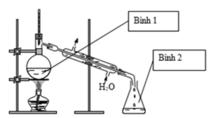Read the following passage and mark the letter A, B, C or D to indicate the correct answer to each of the questions from 36 to 42.
Diversity is a hallmark of life, an intrinsic feature of living systems in the natural world. The demonstration and celebration of this diversity is an endless rite. Look at the popularity of museums, zoos, aquariums and botanic gardens. The odder the exhibit, the more different it is from the most common and familiar life forms around us, the more successful it is likely to be. Nature does not tire of providing oddities for people who look for them. Biologists have already formally classified 1.7 million species. As many as 30 to 40 million more may remain to be classified. (1)
Most people seem to take diversity for granted. If they think about it at all they assume it exists in endless supply. Nevertheless, diversity is endangered as never before in its history. Advocates of perpetual economic growth treat living species as expendable. As a result an extinction crisis of unprecedented magnitude is under way. Worse yet, when diversity needs help most, it is neglected and misunderstood by much of the scientific community that once championed it. (2)
Of the two great challenges to the legitimacy of this diversity, the familiar one comes primarily from economists. Their argument, associated with such names as Julian Simon, Malcolm McPherson and the late Herman Kahn, can be paraphrased: "First, if endangered species have a value as resources - which has been greatly exaggerated - then we should be able to quantify that value so that we can make unbiased, objective decisions about which species, if any, we should bother to save, and how much the effort is worth. Secondly, the global threat to the diversity of species, particularly in the tropics, has been overestimated. Thirdly, we have good substitutes for the species and ecosystems that are being lost, and these substitutes will nullify the damage caused by the extinctions". (3)
The structure of the argument seems to me to be identical in form to that of an old joke from the American vaudeville circuit. One elderly lady complained to another about her recent vacation at a resort in the Catskill Mountains in New York State. "The food was terrible", she moaned. "Pure poison, I couldn't eat a bite. And the portions were so tiny!" (4)
Species may be valuable, but not especially so, and the threat to them has been exaggerated. But this does not matter anyway, say the economists, because we can replace any species that vanishes.(5)
It is not clear how much of an impact this argument has on the informed public, but it has certainly provoked an outcry among scientific conservationists. It has set the terms for, and dominated, most of the pro-diversity literature of the past few years, making it a literature of response, thus limiting its scope and creative force.
Question 37: Which feature of the natural world do people find especially fascinating?
A. its great variety
B. its ancient forms
C. its strange ritual
D. its unclassified species



